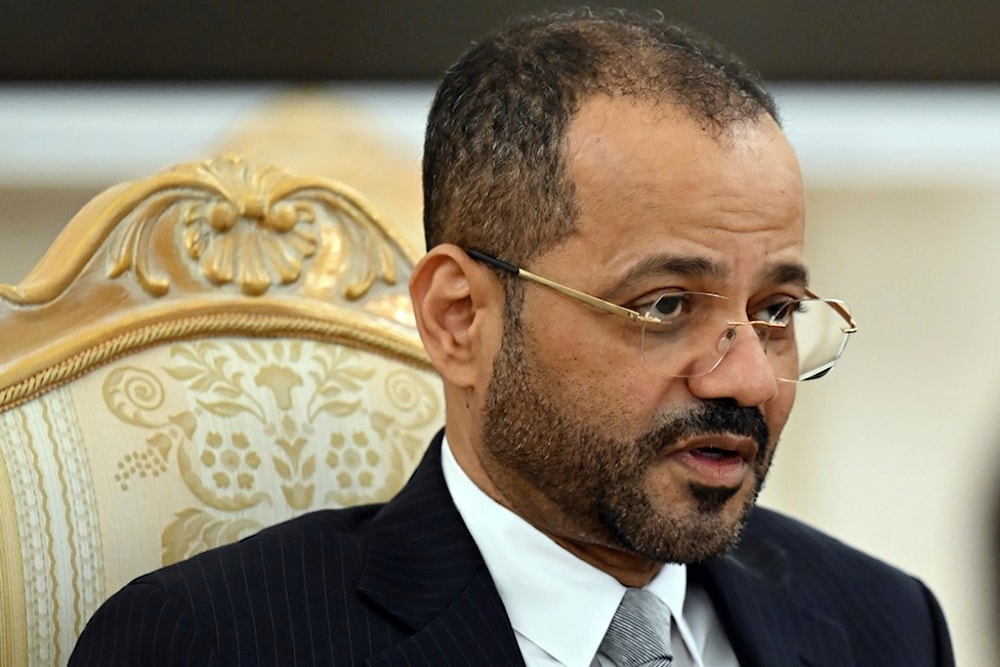Omani FM urges Western powers to curb Israeli provocations on region
The Omani Foreign Minister commended France and the UK for recent moves to restrict weapons sales to "Israel".
-

Oman's Foreign Minister Sayyid Badr bin Hamad bin Hamood Albusaidi speaks to Russian Foreign Minister Sergey Lavrov during their talks in Moscow, Russia, Tuesday, July 11, 2023. (AP)
The Financial Times on Thursday reported that Oman's Foreign Minister, Badr Albusaidi, called on Western nations to intensify their efforts to constrain "Israel's" military actions in the Middle East, urging them to fulfill a "moral obligation" to bring an end to "Israel's" offensives against Resistance groups.
His statement, made as escalating Israeli offensives are deliberately plunging millions into humanitarian crises, highlights growing frustration among Gulf leaders about Western responses to the wars.
Albusaidi argued that diplomatic persuasion alone is insufficient to curb Israeli actions and suggested that Western allies like the US, France, and the UK should leverage their influence, including by limiting arms sales to "Israel", to achieve de-escalation.
"There needs to be some kind of a constraint put on Israel to halt its aggression," he told FT. Oman's trusted diplomatic ties with the US and Iran lend particular weight to Albusaidi's comments, as Oman has often played a mediating role in the region.
In a push for broader diplomatic solutions, Albusaidi asserted that Western countries should break their "outdated, Cold War habit" of unconditional support for "Israel", instead of advocating for peace-oriented leverage.
He commended France and the UK for recent moves to restrict weapons sales, suggesting other allies follow suit. With White House officials due in "Israel" to advance a draft ceasefire plan with Hezbollah, Albusaidi's comments underscore mounting international pressure for a shift toward peace.
Gulf unsettled
The escalating regional crisis, meanwhile, has unsettled Gulf nations, including Saudi Arabia and the UAE, which are actively pursuing a so-called "two-state solution" to solve the occupation of Palestine.
Leaders in these states worry that the protracted violence could destabilize the relatively peaceful Gulf region, fuel radicalization, and create further threats to regional security.
Saudi Arabia has held firm that it will not normalize relations with "Israel" unless it commits to irreversible steps toward establishing a Palestinian state.
Albusaidi also addressed Iran's role in the war, defending its support for groups like Hamas and Hezbollah as a response to "Israel's" continued occupation of Palestinian land — an issue he called the "root cause" of the region's instability.
He voiced hope that indirect US-Iran talks could soon resume and potentially evolve into direct negotiations on issues like sanctions and Iran's nuclear program.
"The only country I see now that wants to continue the war is Israel," Albusaidi concluded, adding that the international community is failing to stop "this madness."
Read more: Gulf seeks to assure Tehran of neutrality amid rising tensions: Report

 3 Min Read
3 Min Read








